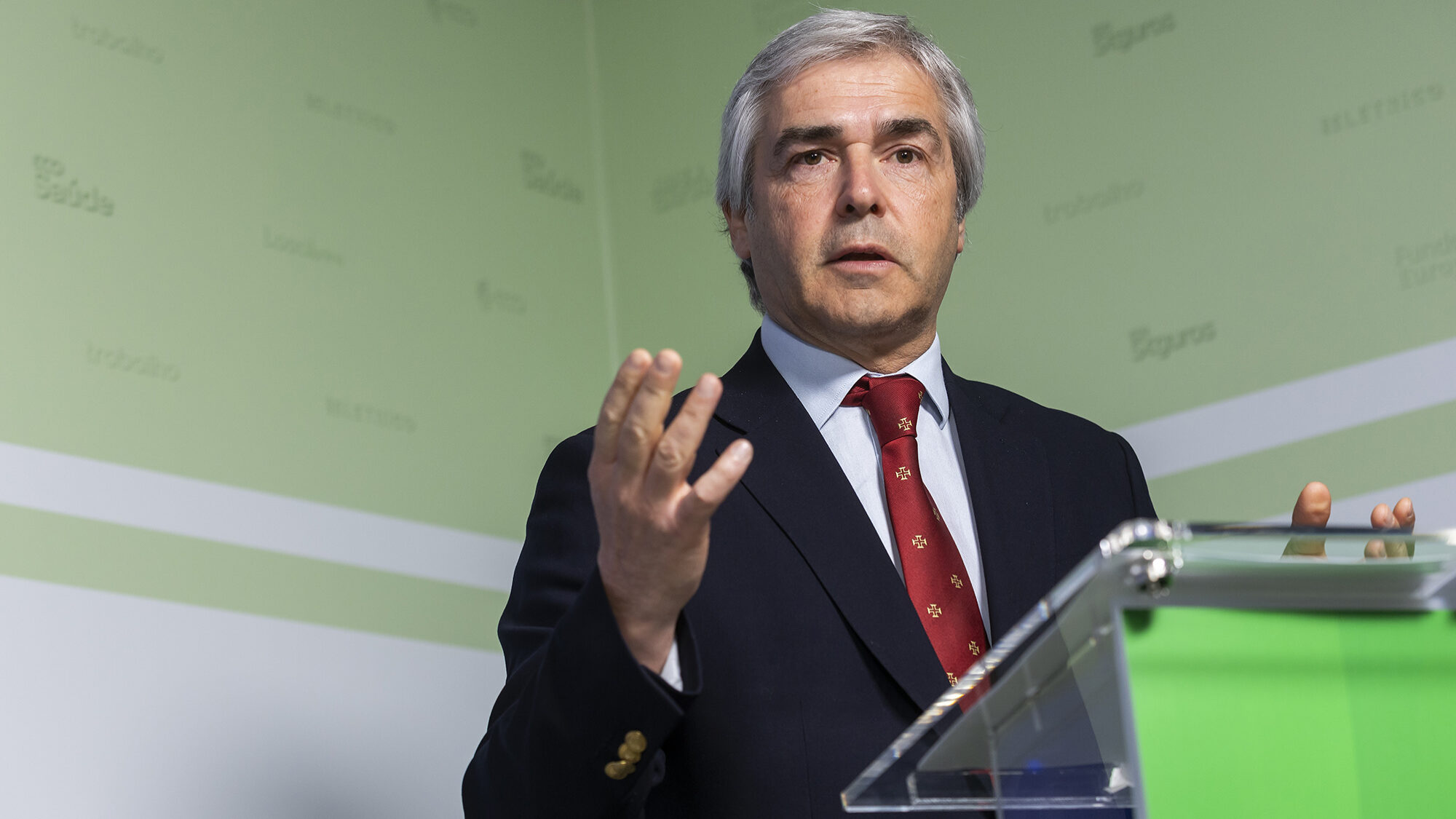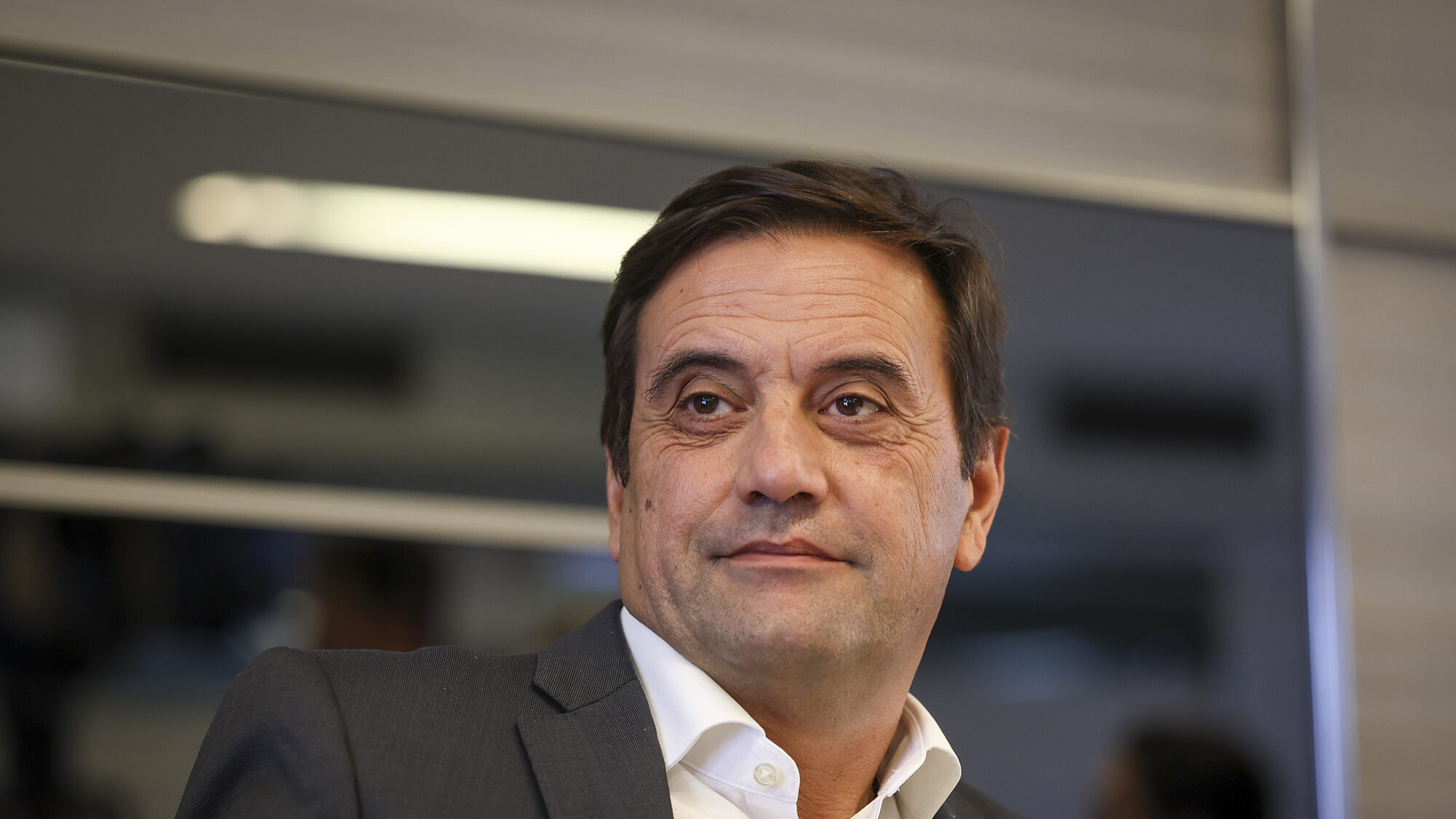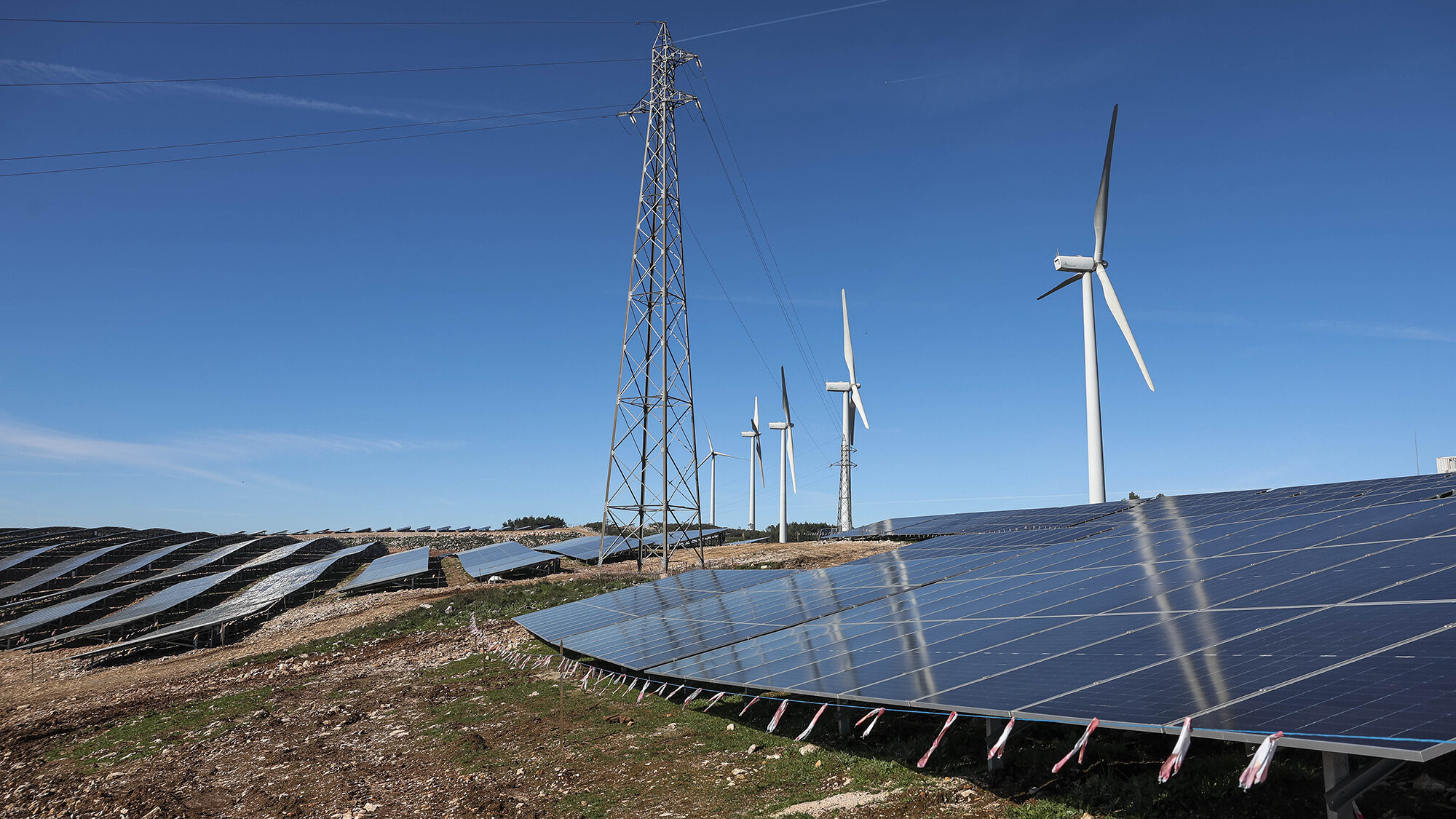The budget surplus forecast for next year is €230 million. The government is taking precautions and shifting responsibility to the opposition if the debate in Parliament leads to increased spending.
A budget with no margin to accommodate opposition measures without returning to budget deficits, a scenario for which the Finance Minister has already blamed Parliament. This was the proposal submitted on Thursday to the Assembly of the Republic by Joaquim Miranda Sarmento, in the form of a dry document, purged of policies, whose main novelty lies in the new guise that, in the future, will allow greater monitoring of the Government’s actions. At first glance, approval is well on track.
With a budget balance of only 0.1% of Gross Domestic Product (GDP) forecast for 2026, corresponding to €230 million, Minister Joaquim Miranda Sarmento warned that “there is not really any room” to integrate opposition measures at the speciality stage — such as the permanent increase in pensions, already advocated by Chega (far right) and PS (centre-left).
“If the country does not want to return to deficit, the margin is close to zero. The figures are what they are”, said the minister at a press conference at the Ministry of Finance in Lisbon, which lasted only an hour.
From the stage set up for the presentation, the minister in charge issued warnings to the navigation’ — read ‘opposition’. “Parliament will have to decide. If it wants to maintain the balance of public accounts, there is not really any room for additional measures. Now it is a bill that has been submitted to Parliament, and Parliament will discuss it. The political parties, parliamentary groups and individual MPs will make the amendments they deem appropriate, and Parliament will vote on them”, he said.
The aim is to stop measures such as the permanent increase in pensions to €522 advocated by the PS, which would immediately consume almost double the amount that separates the surplus from the deficit. According to the estimate given by the socialist secretary-general, José Luís Carneiro, the increase would cost the public coffers €400 million.
“It is essential, at this stage of the economic cycle, when we have growth and are close to full employment, for the country to continue to have a balanced budget and to continue to reduce public debt by three or four percentage points per year, in order to reach the end of the decade with public debt below 80% of GDP”, he argued.
And Joaquim Miranda Sarmento does not want to risk going down in history as the minister who, after three consecutive years of positive balances, reaches the end of 2026 with the accounts in the red. Which, according to the forecasts of most economic institutions, will be challenging, especially in a year when the Recovery and Resilience Plan (PRR) is being implemented.
This is because, although the non-execution of all PRR loans may be an advantage in “cushioning” the impact on the balance, the minister assured that the Government is absolutely committed to successfully implementing the funds. “The PRR is being implemented with the aim of full execution, grants and loans. The State Budget was designed so that the PRR could be fully implemented”, he assured.
“If we did not have the PRR loans, we would not be carrying out some projects and incurring some expenditure. I am not going to discuss the merits of that decision, which was taken in 2021 and then in the 2023 reprogramming, but we would be talking about a surplus of 0.8% of GDP”, he noted.
At the same time, there is once again an increase in public spending (which, excluding the effect of the PRR, is expected to rise from 41.2% of GDP in 2025 to 41.4% in 2026). To sustain this, the Minister of Finance forecasts, based on good economic performance, revenue (also excluding the PRR) stabilising at 42% of GDP. Even so, he guarantees that the tax and contribution burden will be reduced by 0.1 percentage points to 34.7% in 2025. In his presentation, Miranda Sarmento also pointed out that primary current expenditure, excluding one-off measures and PRR, would stand at 36.3% in 2025 and 36.5% in 2024.
PS opens the door to viability
What is certain is that the Executive left out of the budget proposal measures that could justify tougher negotiations with the opposition for the approval of the Budget, such as the reduction of corporate income tax. The strategy has borne fruit, according to the first political signs.
The leaders of the largest opposition parties have not yet committed to a vote on the budget, but better news is coming from Largo do Rato than from Calçada da Estrela. The PS secretary-general has opened the door to approval because the government has “met the demands” of the party in terms of labour legislation, the Basic Health Law, and also “public social security” and “treatment of fiscal issues outside the budget”.
It is true that changes to labour law do not have to be budgeted for in this State Budget, but they are red lines for the PS, as is the NHS. Not only did this cut not happen, but health will receive more than €17 billion next year, which means an increase of 1.5% compared to 2025.
Despite this increase, and ensuring that he wants to “contribute to political stability”, José Luís Carneiro pointed out that this would not be the budget presented by the PS, as it would have “other options” for economic, fiscal, and social policy. Tuesday will be D-day for the PS to take a position, after meetings of the socialist parliamentary bench leadership, the parliamentary group, and the National Political Commission.
For Chega, the direction of the vote is still “a long way off”. André Ventura was less complimentary about the budget and even issued a ‘warning’ (which could mean a rejection in Parliament): attention should be paid to the forecast increase in revenue from the Tax on Petroleum Products (ISP), contrary to the European Commission’s requests. The leader of Chega fears that this is “a covert manoeuvre to increase fuel taxes”. “If the Government is really counting on maintaining the high tax burden and increasing fuel prices, then frankly there is not much we can do”, said André Ventura.
This is a “very negative” point for Chega, although the party has been heard on several issues in this State Budget, namely on the increase in the Solidarity Supplement for the Elderly (by €40), updates to income tax brackets (a 0.3 percentage point reduction in rates from the second to the fifth brackets) and an 11.4% increase in the budget for internal security.
Government counts on acceleration of investment to boost country’s growth
In the proposal submitted one day before the deadline (breaking with the old tradition of a document closed several times at the 11th hour), the ministry cut this year’s projection by 0.4 percentage points to 2% and points to a rate of 2.3% next year. In this scenario, private consumption will continue to make an essential contribution, but the forecast investment will also accelerate.
However, these projections led the Public Finance Council (CFP) to warn of a possible overestimation of the real behaviour of the economy next year, cautioning about unfavourable external and internal risks. Even so, for the expectation of GDP growth above 2%, the Government is counting on a robust labour market and stabilisation of the contribution of domestic demand. In this case, private consumption will continue to grow, but less than this year, while investment accelerates and exports register only a slight increase in the international context.
Some risks may arise from the international context, such as US tariffs, rising short-term interest rates, a possible increase in oil prices and a slowdown in external demand, with consequences for exports. The minister argued that these factors need to be addressed, not least because, he pointed out, there is a “vulnerability that may arise in the markets due to the fact that large European countries currently have public debt levels not only above 100% of GDP, but in some cases with public debt trajectories that are rising rather than falling”.
Internally, the Executive also identifies the risk of a reduction in demand growth, which would have negative consequences for real economic growth.
Reform of the budgetary process
At the beginning of his term, the Minister of Finance committed to reforming the budgetary process and has taken another step in that direction. For years, Joaquim Miranda Sarmento has argued that the document should no longer contain so-called “budgetary riders” and should focus on more efficient management of revenue and expenditure, which is why he wanted to leave his mark on this year’s proposal.
As such, the Government (and in campaign for the local elections) chose to bring forward the announcement of the main changes, such as the 3.51% update to income tax brackets — which may still cause controversy, as they call into question the principle of fiscal neutrality for salary increases of 4.6%, as set out in the income agreement — and to submit a document that leaves major tax changes out of the debate.
“The fact that we have taken the IRS, corporate income tax, the Immigration Law and all the other rules that we have already taken and will take individually to Parliament, allows Parliament, the house of democracy, to hold a serious, in-depth, informed debate on each of the Government’s policies and then decide whether to approve or reject them or approve them in a different way from what the Government proposed”, he argued.
The main novelty of the document is mainly technical and involves extending the programme-based budgeting experience carried out last year in eight ministries to all ministries. The aim, according to the minister, is to “promote alignment between strategic planning and budgetary programming”, with objectives and targets.
This is because the minister postponed any changes to the ISP, in a solution that is being negotiated with Brussels, or the allocation of loans at more advantageous costs for investment in defence next year.
After more than three minutes of thanking the Finance team, other members of the Government and public institutions, Joaquim Miranda Sarmento praised the date of delivery, one day before the deadline set by law, which stipulates that the document must be delivered by 10 October. It should be noted that the Government did not have the flexibility to adjust the delivery schedule, not least because local elections are taking place this weekend.
According to the minister, it was “thanks to the extraordinary work” of the Ministry of Finance, as well as other offices, that the budget could be delivered a day early. “This is important, given the current situation. As it is one of the most important documents in the collective life of the country, and in the individual lives of people and businesses, it was urgent, unavoidable and a categorical requirement for transparency to explain its content”, he stressed.




